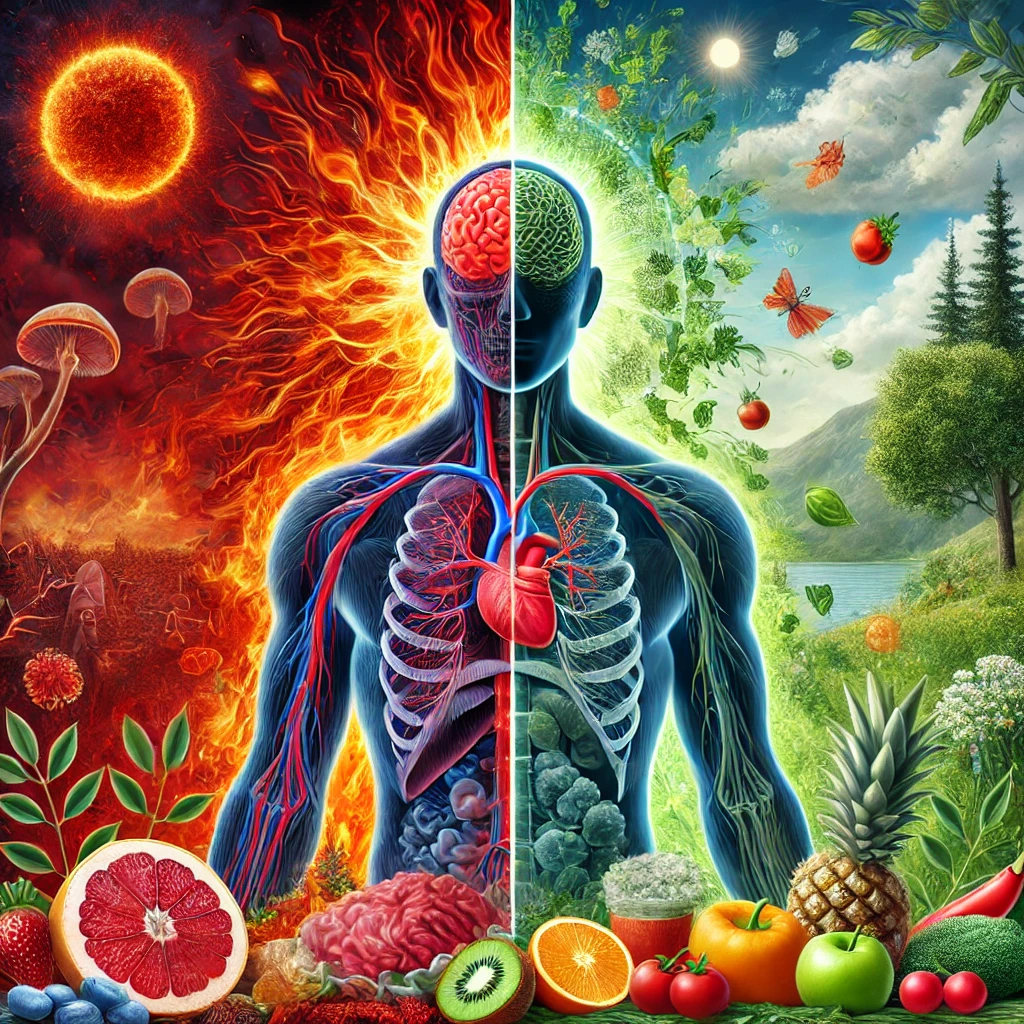Anxiety disorders are complex and multifaceted, stemming from various factors that disrupt the brain’s emotional processing center, particularly the limbic system. This guide explores the causes of anxiety and offers practical strategies to manage and mitigate its effects.
Causes of Anxiety Disorders
Genetics
Anxiety disorders can run in families, indicating a genetic predisposition. If a close family member has an anxiety disorder, you may be at a higher risk.
Brain Chemistry
Research suggests that anxiety disorders may be linked to faulty circuits in the brain that control fear and emotions. Neurotransmitters like serotonin and dopamine play a crucial role in mood regulation. Reduced levels of these neurotransmitters are associated with anxiety and depression.
Environmental Stress
Stressful events experienced or witnessed can contribute to anxiety. Childhood trauma, physical or emotional abuse, and significant life changes can trigger anxiety disorders.
Neurotransmitters
Alterations in neurotransmitter signaling can increase the risk of anxiety. Issues with neurotransmitters like GABA (gamma-aminobutyric acid) can also contribute, as GABA helps control anxiety signals in the brain.
Hormonal Imbalances
Hormonal changes can impact neurotransmitter production, exacerbating anxiety. Low testosterone levels and issues with serotonin regulation are linked to increased anxiety.
Managing Anxiety Disorders
Managing anxiety involves a combination of strategies, including lifestyle changes, therapy, and dietary adjustments. Below, we delve into various approaches to help manage anxiety effectively.
Learning About Anxiety
Understanding the nature of anxiety and its causes can empower you to manage it better. Educate yourself about anxiety disorders, their symptoms, and treatment options.
Mindfulness and Relaxation Techniques
Practicing mindfulness and relaxation techniques can help calm the mind and reduce anxiety. Techniques such as meditation, deep breathing exercises, and yoga can be beneficial.
Correct Breathing Techniques
Proper breathing techniques, especially at night, are crucial. Snoring and lack of oxygen to the brain can worsen anxiety. Practice deep, slow breathing to ensure adequate oxygen supply and reduce stress.
Cognitive Behavioral Therapy (CBT)
CBT is the most effective form of psychotherapy for anxiety disorders. It involves identifying and challenging negative thought patterns and behaviors, and replacing them with more positive, constructive ones.
Cognitive Therapy
This form of therapy focuses on changing negative thought patterns that contribute to anxiety. By recognizing and altering these thoughts, individuals can reduce their anxiety levels.
Exposure Therapy
Exposure therapy involves gradually facing fears in a controlled environment. This method helps reduce the fear response over time, making it easier to manage anxiety triggers.
Structured Problem Solving
This technique helps individuals break down overwhelming problems into manageable steps. By addressing issues systematically, anxiety related to problem-solving can be reduced.
Building Self-Esteem
Building self-esteem is essential for managing anxiety. Engage in activities that boost confidence, set and achieve small goals, and practice positive self-talk.
Silence and Rest
Adequate sleep and rest are vital for managing anxiety. Create a restful bedtime routine, avoid screens before sleep, and ensure a comfortable sleeping environment to promote better sleep quality.
Personalization
Tailor your wellness practices to fit your unique needs and preferences. What works for one person may not work for another, so personalize your approach to managing anxiety.
Transformation Through Practice
Commit to continuous improvement through consistent practice of anxiety management techniques. Over time, these practices can lead to significant positive changes in your mental health.
Dietary Adjustments for Anxiety
Foods That Have Been Proven To Exacerbate Anxiety

Certain foods can worsen anxiety symptoms and should be consumed in moderation or avoided:
- Alcohol
- Caffeine
- Sugary drinks and foods
- Processed foods
- Foods high in trans fats and excessive saturated fats
Foods That Are Known To Mitigate Anxiety

Incorporating specific foods into your diet can help reduce anxiety:
- Protein: Sources like lean meat, fish, nuts, and dairy provide amino acids that support neurotransmitter production.
- Complex Carbohydrates: Whole grains, such as oatmeal and quinoa, can increase serotonin levels, promoting calmness.
- Omega-3 Fatty Acids: Fatty fish and chia seeds can reduce anxiety and inflammation.
- Magnesium and Zinc: Leafy greens and foods rich in zinc, such as oysters and cashews, can help lower anxiety levels.
- Tryptophan-rich Foods: Turkey, bananas, and oats can promote relaxation and anxiety relief.
Hormone-Balancing Drinks Suggestions

Certain drinks can help balance hormones and support anxiety management:
- Lemon Water
- Herbal Teas
- Golden Milk Turmeric Tea
- Green Tea
- Matcha Latte
- Infused Water
- Juices
- Apple Cider Vinegar
Conclusion
Anxiety disorders are influenced by a complex interplay of genetic, environmental, and neurochemical factors. By understanding these causes and implementing a combination of therapeutic strategies, lifestyle changes, and dietary adjustments, it is possible to manage and reduce anxiety effectively. Embrace these practices to enhance mental well-being and lead a more balanced, fulfilling life.
Medical Disclaimer for Mama Vega Enterprises: Optimal Health 360 Blog Post
The information provided on the Mama Vega Enterprises: Optimal Health 360 blog is for general informational purposes only and is not intended as a substitute for professional medical advice, diagnosis, or treatment. Always seek the advice of your physician or other qualified health provider with any questions you may have regarding a medical condition.
Never disregard professional medical advice or delay in seeking it because of something you have read on this blog. The opinions expressed by the authors are their own and do not necessarily reflect the views of Mama Vega Enterprises, its subsidiaries, or its affiliates. Mama Vega Enterprises does not endorse or assume any responsibility for the accuracy or reliability of any opinions, advice, or statements made on the blog.
If you think you may have a medical emergency, call your doctor, go to the emergency department, or call 911 immediately. Reliance on any information provided by Mama Vega Enterprises: Optimal Health 360, its contributors, or other visitors to the blog is solely at your own risk.
Mama Vega Enterprises is not responsible for the content of linked third-party sites and does not make any representations regarding the accuracy, completeness, or any other aspect of the information contained on such sites. The inclusion of any link does not imply endorsement by Mama Vega Enterprises.









